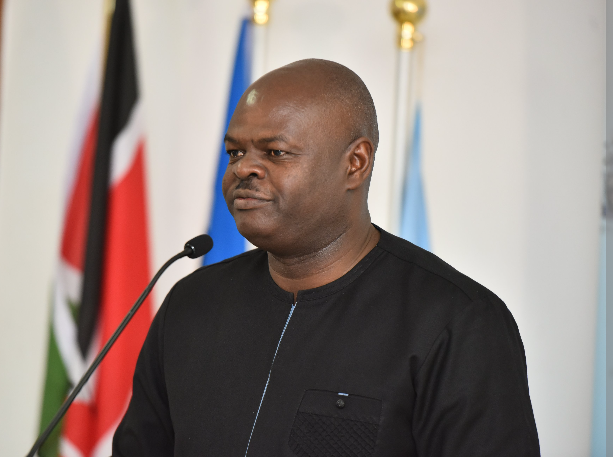The Ethics and Anti-Corruption Commission (EACC) has recently raised concerns over the University of Nairobi’s (UoN) appointment of Brian Ouma as the Chief Operations Officer (COO), citing irregularities in both the creation of the position and the extension of Ouma’s tenure.
The controversy is exacerbated by Ouma’s degree from Pontifical Urbaniana University, a foreign institution not recognized by Kenyan educational authorities, further casting doubt on his qualifications for the role.
This issue is not the first controversy surrounding Ouma.
Since assuming his position, his tenure has been marked by several contentious issues that have led to public outcry.
Allegations suggest that Ouma played a major role in the internal power struggles at the university, including orchestrating the removal of Vice-Chancellor Prof. Stephen Kiama.
Ouma is believed to have aligned himself with internal “cartels” to consolidate his influence within the university administration.
This has raised concerns about the governance of UoN and whether personal agendas are overshadowing academic integrity and leadership at the institution.
Beyond his role in university politics, Ouma’s leadership has been criticized for deepening the challenges facing UoN, an institution already grappling with financial strain, staff discontent, and student protests.
Critics argue that Ouma’s continued presence and influence reflect a broader failure in addressing governance and corruption issues at the university.
Student leaders and faculty members have voiced their concerns, calling for greater transparency and accountability from the administration.
The controversy surrounding Ouma highlights the broader issues of governance and leadership within public institutions in Kenya, where appointments and internal politics often undermine the core values of the organizations.
For UoN, a reputable institution, the continuation of such practices risks tarnishing its reputation and undermining its role as a leading center of higher education in the region.
The situation calls for a thorough investigation by relevant authorities, not only into Ouma’s appointment but also into the structural issues that have allowed these practices to persist within the university.
Whether UoN can restore its standing will depend on how it navigates these controversies and reforms its governance structures moving forward.





















Add Comment